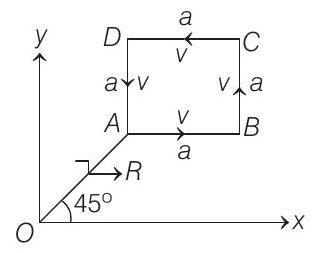Centre of Mass 4 Question 3
4. A particle of mass

(2016 Main)
Which of the following statements is false for the angular momentum
(a)
(b)
(c)
to
(d)
Numerical Value
Show Answer
Answer:
Correct Answer: 4. (b, d)
Solution:
- We can apply
For example :
In part (a), coordinates of
So, substituting in
Hence, option (a) is correct. Similarly, we can check other options also.






